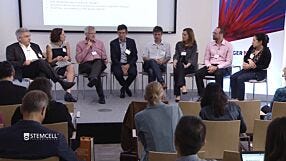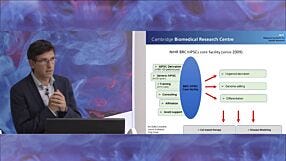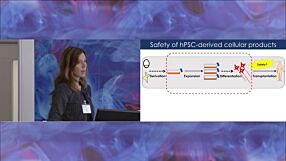Nature Research Round Table: Identifying Acquired and Background Genetic Variants in Human Pluripotent Stem Cells
Dr. Florian Merkle from the University of Cambridge talks about the implications of quality control during gene editing, in particular genetic variants that arise during routine culture and genetic variants that might have been acquired during the process of gene editing. This presentation and the following Q&A session were moderated by Dr. Alex Alderton from the Wellcome Trust Sanger Institute.
This presentation was part of a Round Table series titled “Challenges in Ensuring hPSC Quality”, hosted in partnership with Nature Research. Global experts gathered at the Springer Nature headquarters in London, UK, to tackle some of the most pertinent issues impacting the use of human pluripotent stem cells (hPSCs), ranging from fundamental biology research to therapeutic applications. Explore the full series here.
Dr. Florian Merkle from the University of Cambridge talks about the implications of quality control during gene editing, in particular genetic variants that arise during routine culture and genetic variants that might have been acquired during the process of gene editing. This presentation and the following Q&A session were moderated by Dr. Alex Alderton from the Wellcome Trust Sanger Institute.
This presentation was part of a Round Table series titled “Challenges in Ensuring hPSC Quality”, hosted in partnership with Nature Research. Global experts gathered at the Springer Nature headquarters in London, UK, to tackle some of the most pertinent issues impacting the use of human pluripotent stem cells (hPSCs), ranging from fundamental biology research to therapeutic applications. Explore the full series here.
Publish Date:
November 01, 2019
Request Pricing
Thank you for your interest in this product. Please provide us with your contact information and your local representative will contact you with a customized quote. Where appropriate, they can also assist you with a(n):
Estimated delivery time for your area
Product sample or exclusive offer
In-lab demonstration
By submitting this form, you are providing your consent to STEMCELL Technologies Canada Inc. and its subsidiaries and affiliates (“STEMCELL”) to collect and use your information, and send you newsletters and emails in accordance with our privacy policy. Please contact us with any questions that you may have. You can unsubscribe or change your email preferences at any time.








